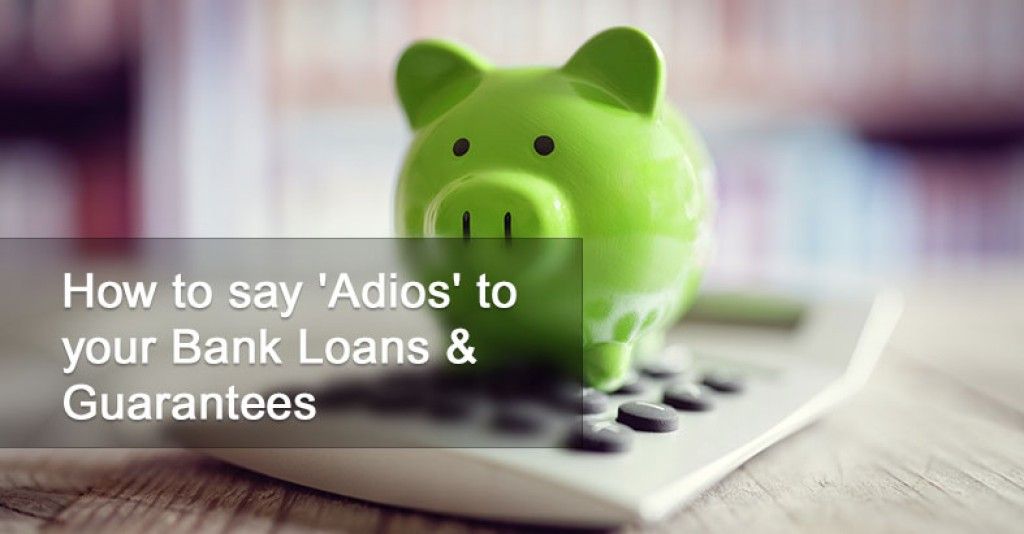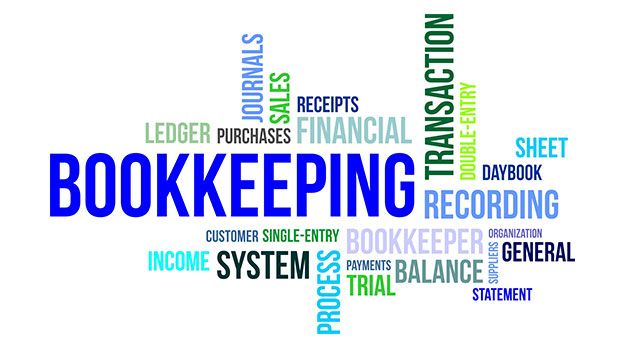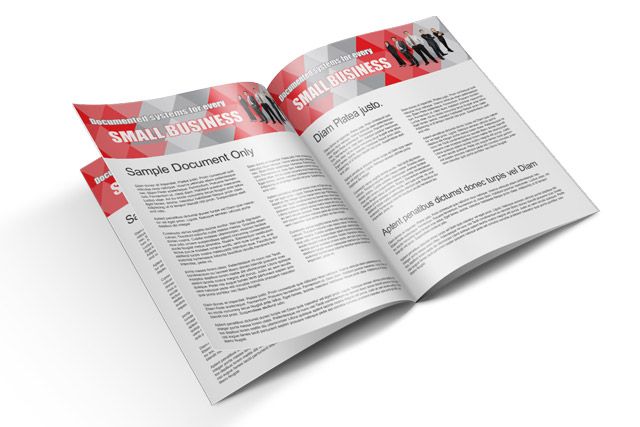How to say 'Adios' to your Bank Loans & Guarantees
Issue 030
How often do you have people telling you how lucky you are that you own your own business?
If only they knew the half of it!
Most small and medium sized businesses these days are heavily supported by bank loans or overdrafts.
Then, there are always those times, when being in business feels like you’re living inside a pressure cooker.
You know what it’s like.
Customers put the squeeze on you.
Your cashflow starts to tighten up and you don’t know how you’re going to pay your wages and your bills, or, meet this month’s loan repayments.
Yep, it’s all part of being lucky enough to have your own business!
Of course, there are plenty of benefits that come from being a successful small and medium sized business owner, but rewards, always seem to come with risks.
One of the risks associated with bank loans, for example, is that someone has to put their hand up and guarantee them.
The banks insist.
That’s normally going to be you, but it could be your wife, your husband, Aunt Millie, maybe even, your mother-in-law.
Sometimes, these people don’t even know the risk they’ve put themselves at by agreeing to guarantee; they’ve simply shown their faith in you and your dream.
But, a time will come when they want to be freed from the obligations of the guarantee they signed for you five or ten years ago.
Banks don’t tend to make life easy for guarantors, especially when it comes to releases; they’d rather have an extra guarantor on the hook, than willingly release one.
This often means you need to look for a replacement source of capital to pay out the bank, if you want to get those guarantees released, but you’re going to need another guarantor for the next loan.
It’s a vicious circle.
Now, depending on the type of business they’re in, many SME owners believe they can never rest on their laurels.
They want to keep perpetually growing to stay ahead of the pack.
Unfortunately, unless you happen to be sitting on a pile of cash, trying to grow your business, without extra borrowings, can really put a strain on your cashflow.
For most small and medium sized business owners, there’s only two ways to go when it comes to growth.
You build on what you’ve already got or you acquire another business.
Either way, it’s going to take capital, and no doubt, a lot of headaches along the way!
Then, after 30 or 40 years in business, you look in the mirror one day and see a few grey hairs.
You start to think about retirement, but who is going to take on the business you spent all those years building?
You could sell it, but it seems, everybody wants everything for nothing these days.
What you could get from a sale on the open market, probably isn’t going to keep you in the style you’ve grown accustomed to, particularly if your company is just a three, four or five person operation.
Then, reality starts to dawn.
Like so many SME owners, you’ve been using every spare dollar you could get your hands on to keep your business running and the bills paid.
You’ve really been treating your business as your superannuation fund, thinking all along “there’ll be plenty of money there when I need it”.
So, if you want to retire with dignity, you’re going to need a good price for the business you’ve spent your life building, and you’re going to have to be the one setting the terms.
OK. I agree, enough of this ‘doom and gloom’ talk.
Let’s look at a potential solution for you that could cover all these issues for you.
Around 2010, in countries like the United States, Canada and the U.K., governments started to realise that big public companies had the advantage of being able to raise enormous amounts of money from the public, but small and medium sized businesses were totally at the mercy of their banks.
If they didn’t get along with their banks, then the chances of SMEs getting loans to keep them afloat, or to help them grow, were next to none.
So, a concept call Crowd Sourced Funding Equity Raising was created.
This process levelled the playing field a little by allowing small and medium sized businesses to raise capital from small investors.
Now, don’t start confusing Crowd Sourced Funding Equity Raising with ‘crowd-funding’.
‘Crowd-funding’ is a social media thing, like GoFundMe.
Sometimes it’s used for noble purposes, like raising money for a family left destitute, but ‘crowd-funding’ also has the potential to be abused by scammers looking for a quick buck.
Crowd Sourced Funding Equity Raising is completely legitimate and has nothing to do with social media.
It allows small and medium sized businesses to raise capital by selling a percentage of their shareholding to retail investors, like ‘mums and dads’ and SMSFs, and it’s all overseen by a government regulator.
The process has been very successful in helping SMEs to flourish in those countries where it started.
Along the way, New Zealand jumped on board, but until recently, Australia remained a hold-out.
Finally, after two years of negotiations between business groups, federal government authorities and the Attorney-General, Crowd Sourced Funding Equity Raising became legal here in Australia, after legislation passed through the Federal Parliament.
Since 19 October 2018, Australia’s small and medium sized businesses have been given the ability to raise capital without having to involve banks and all the nasty little conditions they impose.
If you’ve ever had pressure from your bank, then this has got to be music to your ears!
OK, so what’s the catch?
Well, it’s true there are some restrictions, but for most SMEs, qualifying is quite easy.
Your business and any of your subsidiaries, all rolled into one, must turn over less than $25 million a year.
For most SMEs, that’s not a problem.
If your turnover is under the $25 million mark, you could raise up to $5 million a year.
… and that’s $5 million every year.
The whole process is under the control of ASIC, which has licensed seven official intermediaries, whose job will be to raise money from retail investors.
One of those intermediaries claims to have over 35,000 potential retail investors on their books, so they’re starting from a solid position.
These retail investors are only allowed to invest up to $10,000 in any one company within a single year.
This is one of the government’s safeguards, which also includes a mandatory ‘cooling off’ period of five business days, a bit like you have when buying a house.
The good news is that you can raise capital for any legitimate business reason, such as:
- paying off your bank loans or overdraft and releasing your guarantees; imagine being debt free; or
- buying out your competition or another business, or, expanding or retooling your current factory; or
- funding your retirement, while letting the business keep on trading to secure the jobs of your employees.
There could be any number of reasons, but whatever they are, you now have the opportunity to raise capital for them.
Our company, ESS Small Business, is not in the business of money-raising and we’re not licensed to do it anyway.
We’re not tax accountants and we certainly don’t want to lure you away from your own accountants.
So, let me tell you how we fit in.
Our job is to save you and your accountant from having to put in hours and hours of research to decipher how Crowd Sourced Funding Equity Raising operates and how it could best work for your company.
Our team has spent the past 12 months doing that research for you; working through every aspect of the process to compile documents, that will guide you and your advisors through all the ‘ins and outs’.
We’ve also created all the necessary pro-forma material that will save your accountant an enormous amount of time in getting your company and its Offer Document ready to go to the intermediary for funding.
Some of our printed and video information is available free of charge on our website … ESS Small Business - Crowd Sourced Funding.
Other more detailed documents form part of our paid package, which of course, comes with our money-back guarantee.
If your accountants haven’t already started discussing Crowd Sourced Funding Equity Raising with you, then perhaps it’s something you should be starting to look into and asking them about.
As of 19 October, Australia’s small and medium sized businesses have finally caught up with their SME cousins in other major economies.
It’s certainly true that each time you want to go out and raise capital, you’re going to have to sell shares in your business, and admittedly, some SME owners may find that a little hard to swallow.
But, just look at the benefits.
These days, you don’t have to own 100% of your business – ask Rupert Murdoch!
As long as you retain more than 50%, you’ll still be the majority shareholder, and those retail investors who buy in, will be silent partners, simply looking for a return on their investment.
Instead of having an enforceable obligation to the bank hanging over your head every month, you’ll only ever have to pay dividends to yourself and the other shareholders, when the company makes a profit.
For the peace of mind you’ll gain, that doesn’t seem unreasonable.
Do yourself a favour right now.
To start working out if Crowd Sourced Funding Equity Raising could be of benefit to you and your company, go to our website … ESS Small Business - Crowd Sourced Funding.
There’s plenty of free reading and videos to give you an understanding of how it all works, and of course, there’s absolutely no obligation.
If you want to get more specific advice regarding Crowd Sourced Funding Equity Raising and your company, give me a call on 1800 232 088.
Then, go and talk to your accountant and see if Crowd Sourced Funding Equity Raising could be the financial solution for you.
If your accountant is not familiar with the new rules relating to Crowd Sourced Funding Equity Raising, you could suggest that he/she visits the ESS BIZTOOLS' website - Crowd Sourced Funding Equity Raising Package.
If you have any questions, please do not hesitate to send me an email: peter@essbiztools.com.au or Telephone me on 1800 232 088
Have a great day!





































